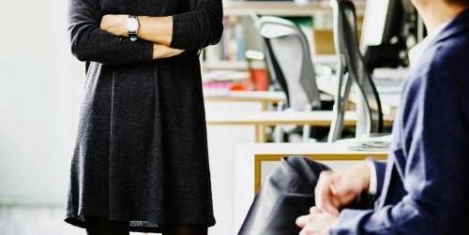February 15, 2017
Demanding working culture in City of London creates ticking stress timebomb 0
Demanding bosses and increased work pressures are turning up the pressure and stress levels for City workers with staff expected to be always available, new research from MetLife claims. Its study of 104 senior decision makers from financial institutions and investment banks found 95 percent say they are expected to be always available for work with weekends seen as a continuation of the normal working week. They work on average 23 weekends a year, with 50 percent of executives saying weekends have been disturbed by work at least 25 times in the past year. Complaining about stress makes no difference – just one in seven (14 percent) of those questioned say bosses have taken action when they have complained about pressure at work.



































January 20, 2017
The facts about sit stand work are already lost in the stream of narrative 0
by Mark Eltringham • Comment, Knowledge, Wellbeing, Workplace design
(more…)